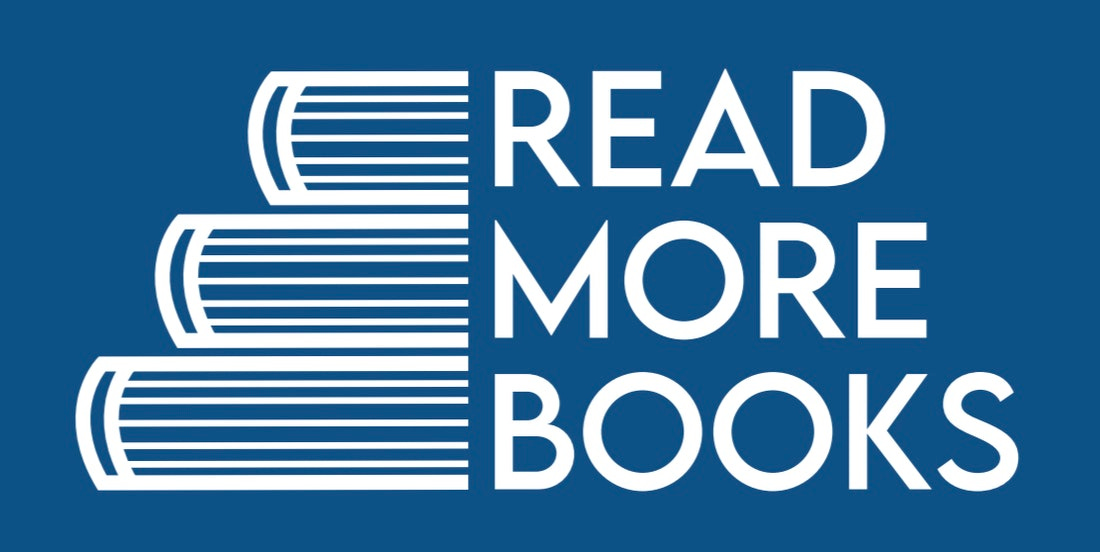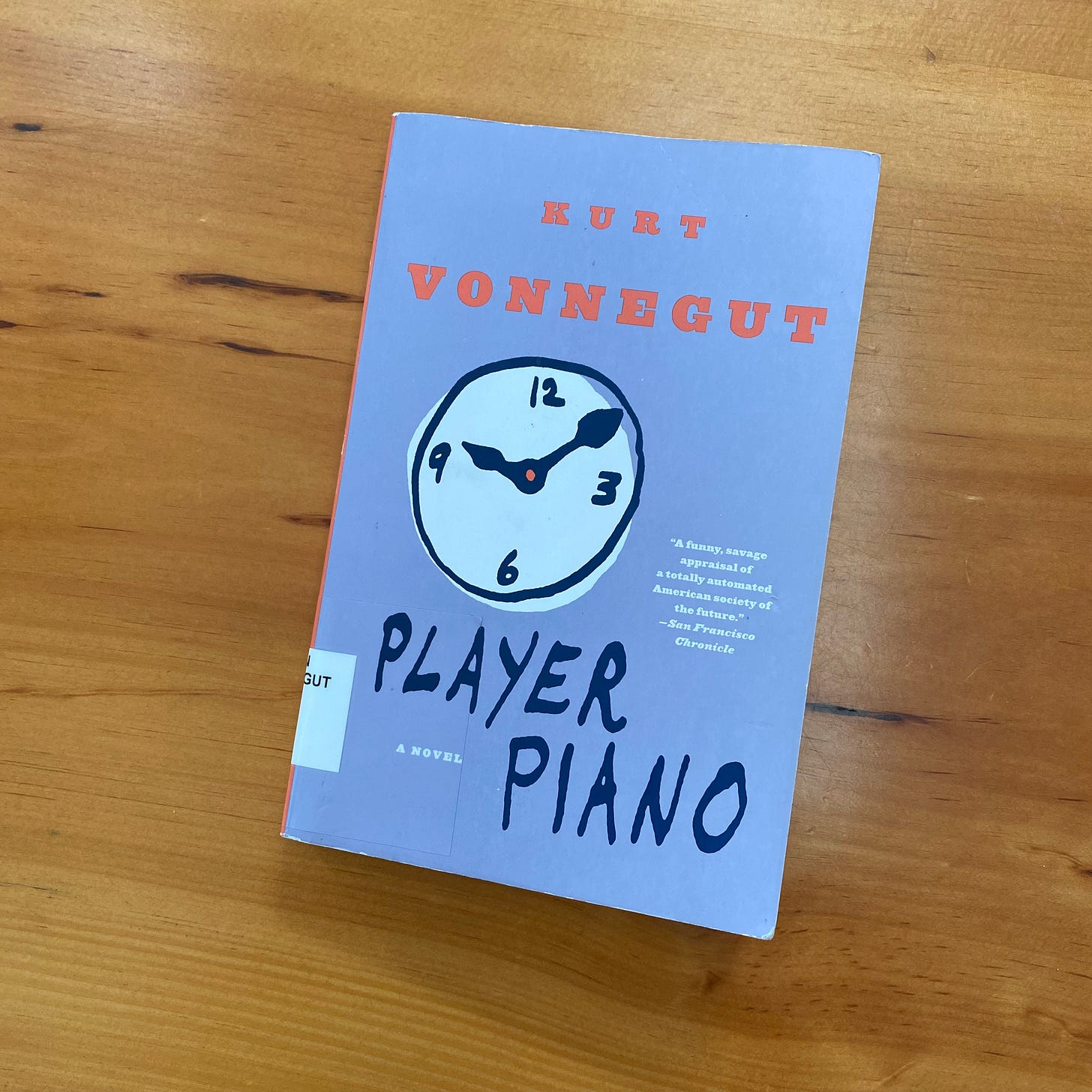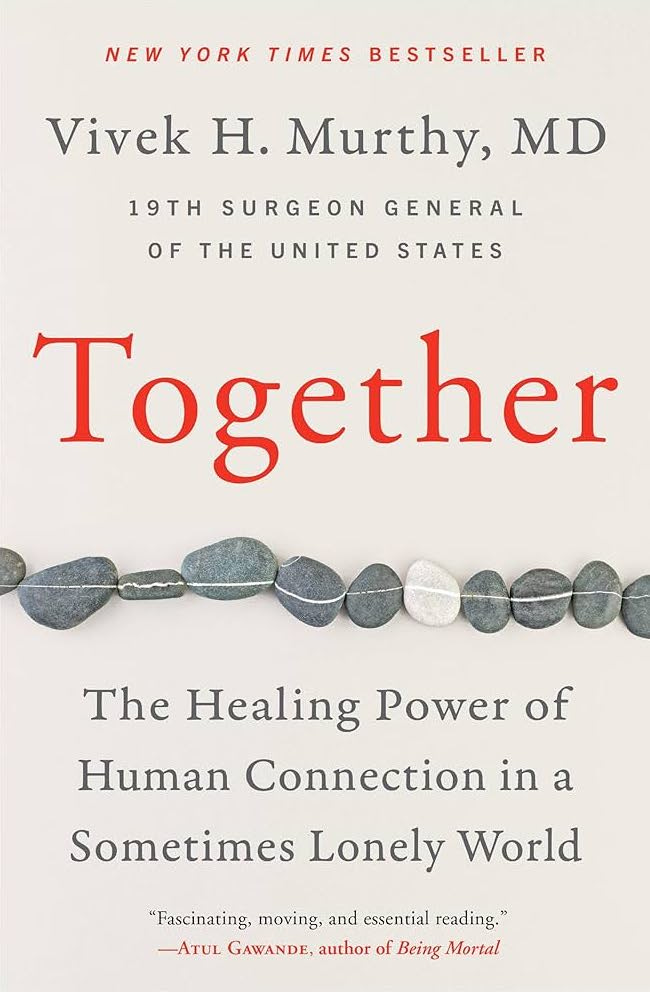What to Read Next: What does it mean to be human?
Issue #331, featuring Kurt Vonnegut and Vivek Murthy
Happy Friday, readers!
It’s sure hard to believe it’s the final day of May. We’re quickly approaching 2024’s halfway point! My reading has been incredibly fun and satisfying this year, and I hope yours has too.
This week I finished two excellent — albeit very different — books that get to the heart of what it means to be a human. Will we be defined by our work and our “progress,” or will we be defined by our relationships and unique skills/gifts?
Let’s get right to it.
Player Piano by Kurt Vonnegut
“The main business of humanity is to do a good job being human beings, not to serve as appendages to machines, institutions, and systems.”
Before this month, my lone Vonnegut experience was well over a decade ago when I read Breakfast of Champions. I don’t remember a single thing about it, so I haven’t been chomping at the bit to read more. But after thoroughly enjoying Player Piano (1952) this week, I’m now thinking that I need to read a lot more Vonnegut.
In a dystopian future in which nearly every aspect of life is automated and managers/tech engineers have all the status, Dr. Paul Proteus, a top-level manager, starts down a path that will have him questioning what it all means. Do the lowly laborers actually know more about living? What does all this managerial status actually get you in the end? Is a fully automated and mechanized life actually better? If not, why are we continually told that it is?
Proteus befriends the wrong kinds of people, pisses off the upper crust, and ultimately sets out to discover what truly gives life meaning. Throughout the novel, Vonnegut also provides short scenes from the perspectives of other people in this world, including a “Shah” who is surveying the pros and cons of this mechanized society.
“People are finding that, because of the way the machines are changing the world, more and more of their old values don't apply any more. People have no choice but to become second-rate machines themselves, or wards of the machines.”
Again and again, this book reminded me of Fahrenheit 451 (a book I absolutely love), but Vonnegut’s plot construction and prose are both — rather unexpectedly — better than Bradbury’s. Amidst the AI-ification of our culture, I honestly can’t think of a more relevant novel for everyone to read.
As is typical of Vonnegut’s writing, it’s weird at times, and you never entirely know where the line is between dark humor and deeply felt philosophy — but that somewhat disturbing discomfort is part of what makes his work so impactful. It sticks with you. I highly recommend Player Piano if you’re into dystopian stories and the existential impact of technology on our world.
Together: The Healing Power of Human Connection in a Sometimes Lonely World by Vivek Murthy
I was admittedly a little skeptical about this book’s substance before reading it. What could there be to fill up a few hundred pages besides just: “Relationships matter. Prioritize people.”
Thankfully, Surgeon General Vivek Murthy filled it out with meaningful anecdotes, eye-opening health data, and thought-provoking advice.
Some of what he shares would likely be obvious to most folks reading this newsletter. Our social ties — friends, family, neighbors, and even acquaintances — have a greater impact on our mental and emotional well-being than just about any other factor. What was more surprising to me was the undeniable impact of quality relationships on our physical health. Loneliness leads to additional stress, anxiety, and general malaise, which has a number of dire effects on our bodies.
It would have been easy for this book to turn into a self-care manifesto, but I was glad to see Murthy spend plenty of time extolling the virtues of service, caregiving, and generally just being charitable in our relationships. He made the insightful point that serving others, with no ulterior motive, is one of the most powerful forms of relationship-building available to us, but our self-care-focused culture has largely eschewed that notion.
After reading Together, you’ll likely feel inspired to reach out to an old friend, strike up a conversation with a neighbor, or organize a park outing with the school parents. Anything that has that effect in our increasingly digitized and polarized society is a winner. There’s no doubt that relationships deserve to be placed at the center of the human experience — well ahead of all those other things that we’re told bring us fulfillment (work/money, vacations, the couch, etc.).
Thanks so much for reading! I deeply appreciate the time and inbox space.
-Jeremy




Glad to hear you liked Player Piano, Jeremy! If you keep reading Vonnegut, I'll be interested to hear how you think it stacks up with his later novels. I'm finding that he really continued to sharpen his wit as he matured as a novelist.
Hi Jeremy thanks for the recommendation of the Player Piano. If it’s like Fahrenheit 451, will definitely be adding it to the list. Really like Bradbury idea in this of completing memorising books to preserve them. What would be your book to memorise?